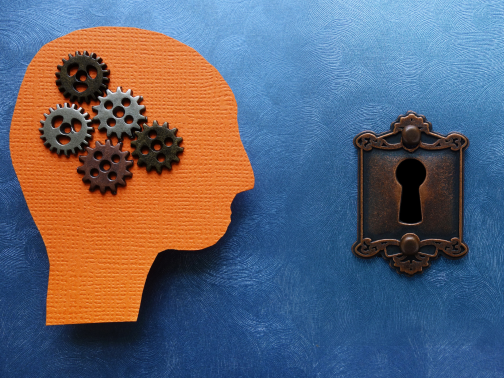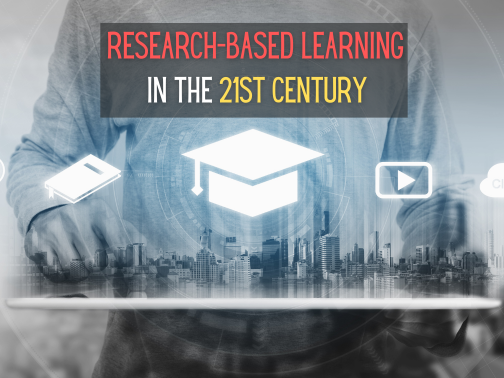Contents
Toggle
Meet Beenish Aslam, an accomplished MPhil scholar, and writer at Wonderful World English. Beenish has a wealth of experience in education, and we sought out her expertise to provide fresh insights into this dynamic world.
Research-Based Learning (RBL) in the 21st century stands as a cornerstone of modern education, fostering a dynamic, inquiry-driven approach that shapes inquisitive minds and nurtures lifelong curiosity.
This method actively involves students exploring significant, relevant questions and challenges by utilizing diverse resources.
As students delve into RBL, they expand their vocabulary and knowledge and engage deeply in the complex processes of analysis and evaluation.
This learning style has embraced a more vibrant and interactive approach, reflecting the changing educational landscape.
At the heart of RBL is encouraging students to undertake inquiry, apply critical thinking, and solve problems effectively. This approach allows learners to conduct research, analyze data, and document their findings comprehensively. RBL emphasizes collaboration, integrating technology, and creating authentic learning scenarios.
As learners broaden their knowledge base, they learn to organize, analyze, and assess ideas precisely.
These activities are essential in developing the ability to understand information, formulate hypotheses, and critically and creatively assess findings.
In essence, RBL plays a pivotal role in cultivating learners’ critical thinking and problem-solving skills.
Additionally, it enhances communication skills through various forms of expression, such as writing and discussion.
Possessing robust interpersonal, problem-solving, and critical thinking abilities is increasingly vital in addressing the complex challenges of our times.
As an MPhil scholar passionate about research and learning, I aim to explore RBL comprehensively in this article.
Whether you’re an educator, a student, or intrigued by the concept of RBL, this is your go-to guide.
So, let’s embark on this enlightening journey into the world of Research-Based Learning!

Benefits and Stages of Research-Based Learning
Research-Based Learning is a transformative approach in modern education, where students actively seek and utilize a diverse range of resources, materials, and texts.
This method guides learners to investigate significant, relevant, and captivating questions and challenges.
As they embark on this journey, students gather and process information and learn to organize and critically evaluate it, enhancing their reading skills and vocabulary.
This enriching process is a testament to the multifaceted benefits of RBL, as highlighted by Solutiontree.com.
This article will delve into the key stages of Research-Based Learning, each playing a pivotal role in shaping a student’s learning experience and overall development.
These stages are not just steps in a learning process but are gateways to unlocking the immense potential within each learner.
Students can significantly enhance their intellectual growth and personal development by understanding and navigating these stages.
So, let’s begin our exploration of these crucial stages of Research-Based Learning and discover how they contribute to the holistic growth of students in today’s dynamic educational landscape.
1. Identification and Clarification
Search-based learning stands as a pillar in modern education, emphasizing the significance of relevance and active engagement in the learning process.
It is a method where learners are not just passive recipients of information but active seekers and solvers of problems.
This approach leads to a deeper involvement in their educational journey, allowing them to find personal relevance in their work and become profoundly engaged in solving complex problems.
One of the key benefits of this learning style is its impact on information retention.
Learners who are deeply involved in the learning process tend to retain information for much longer.
This is a crucial aspect of effective learning, as it goes beyond mere memorization to foster a deeper understanding and long-term recall of knowledge.
Furthermore, learners engaged in Search-Based Learning are uniquely positioned to refine and enhance their skills.
This involves better-identifying problems and diligently working towards finding appropriate solutions.
Such skills are invaluable in today’s fast-paced and ever-evolving world.
The advancement of technology plays a significant role in empowering today’s students.
With access to high-level scientific data, the ability to collaborate with global experts, and the tools to process information swiftly, students can develop innovative experimental ideas.
This technological empowerment transforms how students engage with and contribute to learning.
In summary, Search-Based Learning is not just about acquiring knowledge; it’s about nurturing problem-solving skills, enhancing information retention, and leveraging technology to create a more dynamic and impactful learning experience.

2. Processing of Information
The second stage is integral to both Research-Based and Search-Based Learning methods.
In this phase, learners actively seek and process information from various yet interconnected resources relevant to a specific problem or question.
This stage is not just about gathering data; it’s about diving deep into the content, understanding its nuances, and making meaningful connections.
The act of processing information requires learners to seek out resources and digest the information they contain thoroughly.
Once they have comprehended the material, students organize, classify, and conceptualize the collected data.
This process is crucial as it transforms raw data into coherent, structured knowledge that can be further analyzed and applied.
An additional benefit of this stage, especially for language learners, is its significant improvement in reading skills.
As learners engage with various texts and materials, their ability to comprehend, interpret, and analyze language strengthens remarkably.
This enhancement in reading skills is invaluable, particularly in an increasingly globalized world where language proficiency is a key asset.
On a related note, the article intriguingly poses a question about the limits of human language acquisition: How many languages can a single human learn?
This question not only piques curiosity but also underscores the incredible capacity of the human mind to learn and adapt.
Stay tuned for more insights as we delve into this fascinating topic in the article below!
Related Article: How Many Languages Can You Learn (and Master)? – Revealed

3. Critical Thinking Skills
The third pivotal stage in the learning journey is the development of critical thinking skills.
This stage is central to both RBL and Search-Based Learning methodologies.
Here, learners are not just expected to gather and process information but to engage deeply with it using their critical faculties.
This involves understanding the data, analyzing it in detail, and applying it effectively to various contexts and problems.
In our rapidly evolving, fast-paced world, the ability to think quickly and analytically is more than just an asset; it’s a necessity.
These skills enable individuals to navigate complex situations, make informed decisions, and solve problems efficiently.
The emphasis on critical thinking in RBL equips learners with these essential skills, preparing them to face the challenges of the modern world with confidence and competence.
RBL, in particular, strongly emphasizes nurturing analytical thinking skills.
It provides learners with the tools and frameworks to assess information critically and view the world from a broader, more informed perspective.
This holistic approach to learning encourages students to comprehend the immediate implications of data and its broader impact and significance.
By fostering critical thinking skills, RBL enables learners to develop a more comprehensive and nuanced understanding of the world around them.
This skill set is invaluable, as it empowers individuals to think independently, reason logically, and approach problems with a critical and open mind.

4. Knowledge Application
The fourth and crucial stage in the educational process is knowledge application, which plays a significant role in both RBL and Search-Based Learning frameworks.
This stage centers around learners actively participating in their learning journey and drawing meaningful conclusions from their experiences and findings.
It’s not just about absorbing information; it’s about applying it in practical, real-world scenarios.
A vital aspect of this stage is enhancing the learner’s ability to summarize results and make well-informed decisions based on their findings.
This skill is immensely beneficial across various fields, from journalism to science.
The capacity to draw logical, authentic conclusions from data is essential in each of these domains.
It’s about turning knowledge into action and theories into practical solutions.
This ability to apply knowledge effectively is a significant advantage in today’s world, where the interpretation and application of information are fundamental to various professional and academic fields.
Learners who master this skill are well-equipped to navigate complex scenarios and contribute meaningfully to their chosen fields.
Furthermore, as noted by Mississippi College, educators across the board, including teachers, administrators, and staff members, recognize the importance of academic achievement.
They understand the pivotal role that research-based approaches play in accelerating learning and effectively implementing new ideas.
This acknowledgment underlines the widespread appreciation of the value of RBL and similar methodologies in educational settings.
Knowledge Application bridges the gap between theoretical learning and practical application.
It’s a critical step in ensuring that learners are well-versed in their subjects and capable of using their knowledge in meaningful, impactful ways.

5. Communication of Results
The fifth stage in the educational journey is a critical aspect of both Research-Based Learning and Search-Based Learning.
This stage emphasizes the importance of discovering and analyzing information and effectively communicating the findings.
Learners are encouraged to showcase their results through various means, such as written reports, essays, or action plans, depending on the nature and requirements of the subject matter.
The ability to research and draw conclusions is valuable, but its full potential is realized only when learners can effectively communicate their findings.
This communication is vital, as it demonstrates understanding and allows knowledge to be shared and applied in broader contexts.
RBL, in particular, offers learners numerous opportunities to refine their communication skills, thereby conditioning them to become more effective thinkers and communicators.
Effective communication, primarily written communication, is essential in virtually every field.
The ability to articulate thoughts, findings, and ideas clearly and persuasively is a significant advantage.
It enables learners to convey complex concepts in understandable terms and to engage with audiences effectively.
RBL’s focus on developing communication skills prepares learners to be more impactful in their future roles, whether in academia, the professional world, or personal endeavors.
By mastering the art of communication, learners can ensure that their ideas and findings are understood, appreciated, and implemented.
For those looking to further enhance their communication skills, especially in writing, the guide mentioned below offers excellent tips and strategies.
Sharpening these skills is not just about academic success; it’s about empowering oneself to express ideas more effectively and make a meaningful impact.
Related Article: How to Sharpen Writing Skills – Full Guide

6. Role of a Teacher
The role of a teacher in Research-Based Teaching (RBT) is pivotal in shaping students’ learning experiences and outcomes.
After exploring the key components of RBL and its impact on a learner’s engagement, it’s crucial to understand how an instructor facilitates these learning processes through RBT.
According to Solutiontree.com, teachers are instrumental in the success of research-based instruction.
In RBT, a teacher’s primary role is to create an environment that nurtures student curiosity and encourages questioning.
This involves allowing students to actively gather and process information, fostering a climate conducive to inquiry.
Teachers are not just information providers but facilitators who enable students to pose and answer their own questions, thereby using higher-order thinking and problem-solving skills to apply knowledge in practical scenarios.
A teacher in this setting also acts as a coach, guiding students as they develop their inquiries and navigate through the learning process.
This involves assisting learners in finding, sorting, and evaluating information, thus empowering them to draw their own conclusions.
Moreover, teachers encourage students to communicate their findings effectively, further enhancing their understanding and skills.
Research-based teaching creates opportunities for learners to take ownership of their education, instilling a sense of value and purpose in their learning journey.
Educators strive to develop a positive learning environment that motivates learners to utilize their higher-order thinking and problem-solving abilities.
This approach makes learning more meaningful and prepares students for future challenges.
An essential mechanism in successful RBL is the teacher’s ability to consistently help students comprehend and apply this approach by providing them with ample RBL opportunities. This leads to a classroom culture where learners are continually encouraged to express their opinions, solve problems, and think critically.
The guide mentioned below offers valuable tips and strategies for educators seeking to build such a positive and engaging classroom culture:
Related Article: How to Build a Positive Classroom Culture – Teacher’s Tips
Check out the video below for some insights into this subject.
7. Potential Outcomes for Learners
RBL is not just an educational methodology; it’s a pathway to a multitude of positive outcomes for learners.
These outcomes encompass a broad spectrum of skills and attributes essential for lifelong learning and personal development.
A core benefit of RBL is the development of skills in finding reliable information. In a world awash with data, discerning credible sources is invaluable.
This skill forms the foundation of a lifetime of informed learning and decision-making.
Engagement with diverse writings and research materials in RBL significantly enhances reading skills and broadens vocabulary.
Exposure to various texts enriches language comprehension and fosters a deeper appreciation for different writing styles and content.
The impact of RBL on students’ thinking skills is profound.
Their cognitive abilities are sharpened as they engage in classifying, organizing, and analyzing data.
This enhanced thinking capability is crucial for academic success and effective real-world problem-solving.
Active participation in RBL also strengthens positive mental habits.
Attributes like perseverance and resilience are nurtured as students navigate challenges and complexities in their learning process.
Such traits are essential for personal growth and success in various life endeavors.
RBL’s diverse activities, including taking notes, engaging in reflection tasks, and undertaking various writing assignments, are instrumental in developing writing skills.
Writing, being a fundamental mode of communication, is crucial for academic success and professional growth.
Moreover, RBL fosters a sense of ownership in learners over their learning process, leading to increased self-esteem.
When students feel more in control of their learning, their interest and curiosity are heightened, and they are motivated to put in more effort.
Information retention is another significant outcome.
Learners are more likely to remember information that resonates with them, especially when they have organized it engaging and meaningfully.
Lastly, an essential skill that RBL cultivates is distinguishing between consistent and unreliable information, ideas, and resources.
This skill is critical in today’s era, characterized by misinformation and flawed data.
It enables learners to navigate the information landscape with discernment and critical thinking.
Research-based learning equips learners with robust skills and attributes, preparing them for academic achievement, personal growth, and the challenges of a rapidly evolving world.

Conclusion
As we conclude our exploration of Research-Based Learning (RBL), it’s evident that this educational approach offers immense benefits in the 21st century.
RBL stands out as a beacon for modern education, nurturing a sense of wonder and an unquenchable curiosity in learners.
This sense of inquisitiveness fuels the urge to discover more and fosters a lifelong love for learning.
The active engagement that RBL promotes is key to its success.
As learners delve deeper into their subjects, they develop essential skills that are highly valued in today’s globalized world.
These skills are not just academic in nature but are also crucial for securing attractive career opportunities in a diverse range of fields.
However, the effectiveness of RBL is not solely dependent on the learners.
Teachers play a crucial role in the success of research-based instruction.
Their responsibility extends beyond mere facilitation of learning; they must actively encourage higher-order thinking among their students.
This involves challenging learners to think critically, analyze deeply, and apply their knowledge creatively.
The goal is to provide students with the “wings to fly” while ensuring they are heading in the right direction.
This delicate balance of guidance and independence is what makes RBL so effective.
It empowers learners to explore and grow while maintaining a structured approach to ensure their progress is meaningful and aligned with educational objectives.
In sum, Research-Based Learning is a powerful tool in shaping the minds and futures of learners in the 21st century.
It prepares them both academically and personally for the challenges and opportunities that lie ahead.
We hope this insight into RBL has illuminated its value and potential to enrich the educational landscape of our times.
Image Attribution: All images licensed via canva.com





